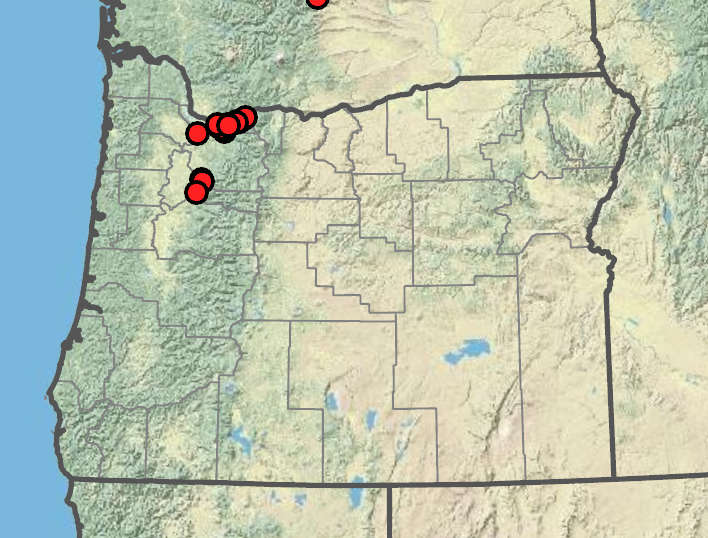Poa arida
Poa nervosa
veiny bluegrass
nodes terete, 1–2 exserted.
mainly extravaginal.
sheaths closed over 67% their length, bases of basal sheaths glabrous, collars of proximal leaves usually pubescent on and near the margins, collar margin hairs longer than those of the sheaths;
ligules 0.5–1.5 mm, ligules of lower culm and sterile shoot leaves to 1 mm, blades of tillers similar to cauline blades or sometimes longer;
cauline blades usually flat, 2–4.5 mm wide; smooth or upper surface sparsely scabrous mainly over the veins;
blades gradually reduced in length higher on the culm or middle blades longest; uppermost blades mostly 3–8 cm long.
erect or lax; ovoid to pyramidal; open or loosely contracted; sparse, 8–15 cm;
spikelets 25–80;
branches ascending to spreading; lax, 2.5–8 cm long, 3–5 per node, with 2–8 spikelets.
4–7 mm; to 3.5 times as long as wide;
florets 3–8;
rachilla internodes smooth or scabrous, glabrous or sparsely hispidulous.
lanceolate; over 67% as long as adjacent lemmas;
lower glumes 1–3(5)-veined.
glabrous or rarely with minute cobwebby hairs.
lanceolate, 3–4.5 mm, distinctly keeled;
keels and marginal veins glabrous or infrequently sparsely short-hairy; area between veins glabrous or hispidulous; smooth or finely scabrous;
tips acute.
vestigial and 0.1–0.2 mm or 2.5–4 mm.
Poa arida
Poa nervosa
Moist conifer or mixed conifer-deciduous forests, waterfalls, seeps. 50–300m. Casc, WV. WA. Native.
Poa wheeleri, once considered part of P. nervosa, has sheaths of lower leaves that are densely scabrous at least in the upper half. Reports of P. nervosa east of the Cascades date from the time before P. wheeleri was recognized as a separate species. Poa nervosa specimens with very inconspicuous collar hairs might be misidentified as P. chambersii, which has a denser inflorescence. Poa laxiflora has a longer panicle with longer, more nodding branches. Poa ×multnomae, a hybrid of P. nervosa × P. secunda, occurs in the Columbia Gorge. It is cespitose and lacks leaf sheath hairs.
Rob Soreng, Barbara Wilson, Richard Brainerd, Nick Otting
- Local floras:
CA,
OR,
WA
- Local Web sites:
CalFlora,
CalPhotos,
Flora NW,
PNW Herbaria
WildflowerSearch
iNaturalist (observations)
USDA Plants Database
- LBJ Wildflower Center
- SEINet
- Plants of the World Online
- Encyclopedia of Life
- Wikipedia
- Google Image Search


